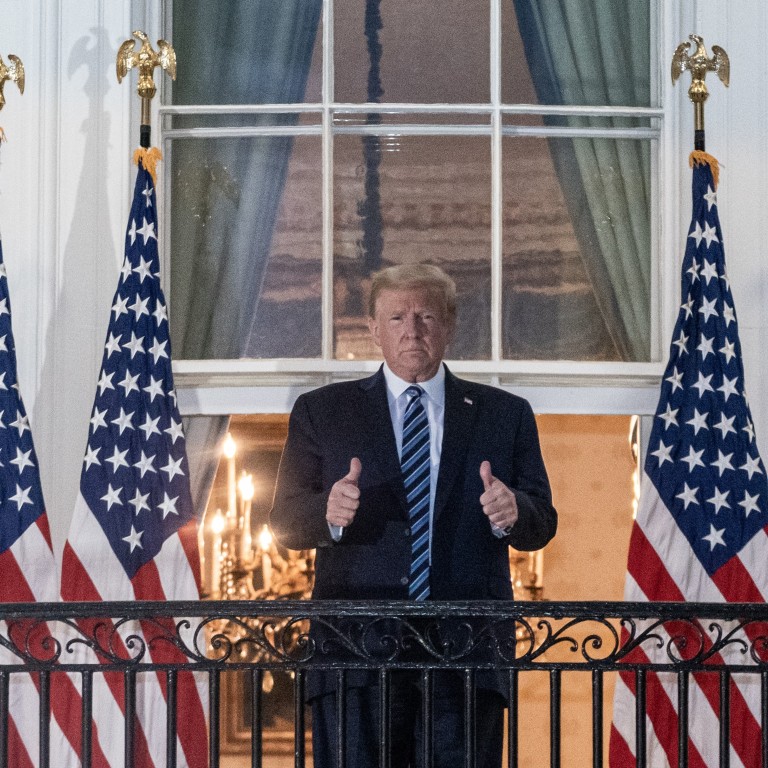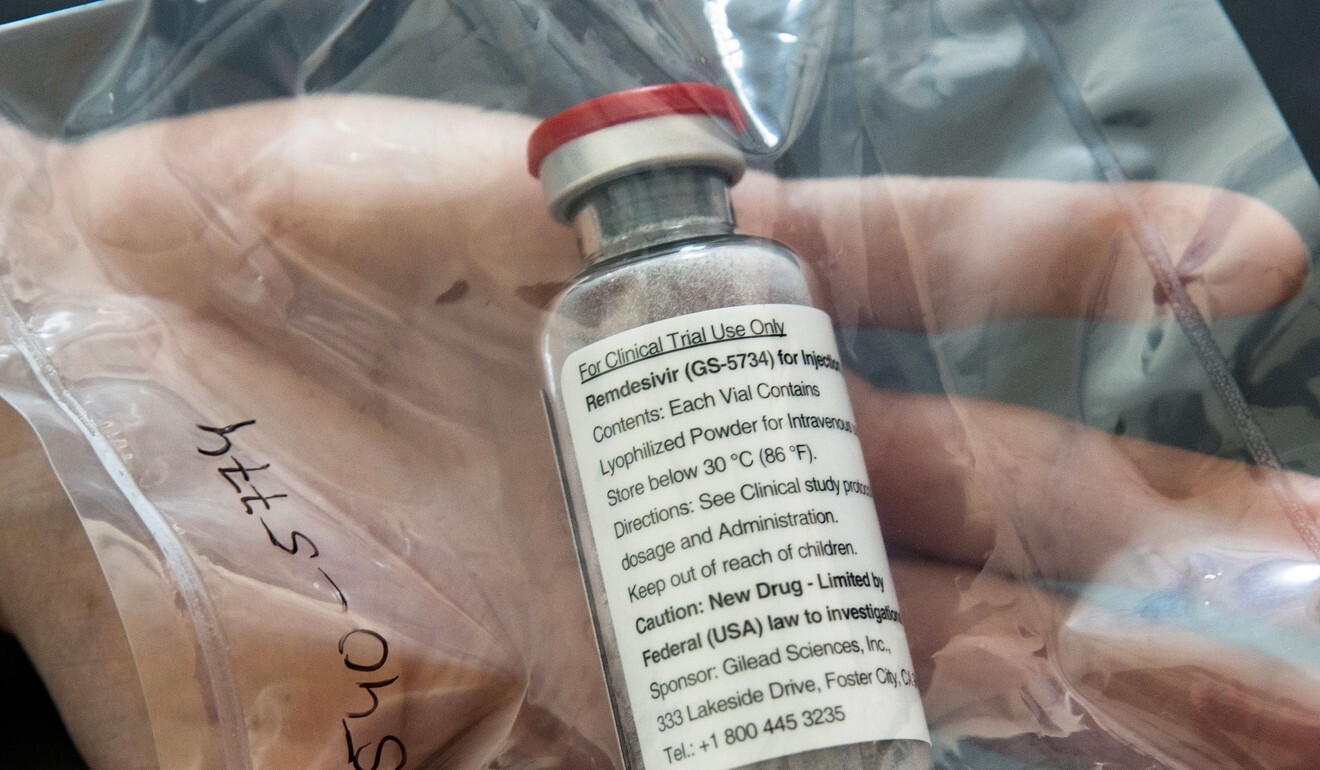
WHO study raises doubts over Donald Trump’s favoured Covid-19 treatments
- Study concludes that four treatments had little to no effect on hospitalised patients, but scientists say drugs may still help in early stage of illness
- One of the treatments, remdesivir, was given to the US president after he tested positive for coronavirus earlier this month
But it was one of four treatments that came up short in the interim results of a trial carried out in more than 30 countries.
None of the therapeutics were shown to decrease deaths or shorten hospitalisation times, according to a WHO statement released on Thursday.
“[The results] indicate that remdesivir, hydroxychloroquine, lopinavir/ritonavir and interferon regimens appeared to have little or no effect on 28-day mortality or the in-hospital course of Covid-19 among hospitalised patients,” the WHO said.
Coronavirus: ‘poor disinfection’ caused virus to spread from port workers to create hospital cluster
Researchers involved wrote that the “unpromising overall findings from the regimens tested suffice to refute early hopes, based on smaller or non-randomised studies”.
The conclusion was based on the interim results of the Solidarity Therapeutics Trial, a WHO-coordinated initiative to test how well existing drugs work against Covid-19.
The trial included more than 11,000 hospitalised adults and compared the outcomes for those given no drugs and those who received one or more of the treatments.
The data has not yet been peer-reviewed.
Two of the drugs under evaluation, the malarial drug hydroxychloroquine and lopinavir/ritonavir, an antiretroviral used in HIV treatment, had already been shown to produce “little or no reduction” in the mortality of hospitalised Covid-19 patients, according to a WHO announcement in July.
The WHO data release follows a study of remdesivir, published in the New England Journal of Medicine earlier this month, that reached a different conclusion.

That study found that the antiviral shortened the recovery time for adults who were hospitalised with Covid-19.
But another small-scale trial, carried out in China and published in The Lancet in April, concluded that remdesivir provided no significant benefits to Covid-19 patients.
The WHO has also given the drug pre-qualification status, which signifies that the drugs are manufactured according to international standards.
The drug’s maker, Gilead Sciences, reacted to the WHO Solidarity trial data in a statement, which said the data appeared “inconsistent with more robust evidence from multiple randomised, controlled studies published in peer-reviewed journals”.
“We are concerned that the data from this open label global trial have not undergone the rigorous review required to allow for constructive scientific discussion, particularly given the limitations of the trial design,” the company said.
The trial results do not rule out the possibility that the treatments could still prove effective in other circumstances, according to Kylie Quinn, a vice-chancellor’s research fellow at RMIT in Melbourne.
Donald Trump used remdesivir and other drugs to fight Covid-19 while first lady Melania and son Barron used vitamins and healthy food – which approach worked best?
“It’s a fairly comprehensive study, bringing in results across many different sites to try and get that understanding of what are options are when someone is hospitalised … but then there are many other trials going on with different sets of conditions and different timing of their assessments,” she said.
Quinn also said it was possible that in the WHO trial it was possible that the protocols or standards of care varied from site to site.
Ashley St John, an associate professor at Duke-NUS Medical School in Singapore, said the study only looked at hospitalised Covid-19 patients, who may have been in the advanced stages of the illness.
“I would still not yet discount the potential of an antiviral therapeutic to influence the course of disease if used early enough, and especially one with a strong scientific rationale such as remdesivir,” she said.
The drugs included in the WHO data release were those that were thought to have the best chances of working against the disease in the early days of the pandemic, but “increased knowledge” in recent months has led to many others that could be “more broadly successful”, St John said.
The WHO said the Solidarity trial platform would continue to evaluate emerging treatment options, and it is considering including newer antiviral drugs and an antibody treatment like one that was given to Trump earlier this month.

